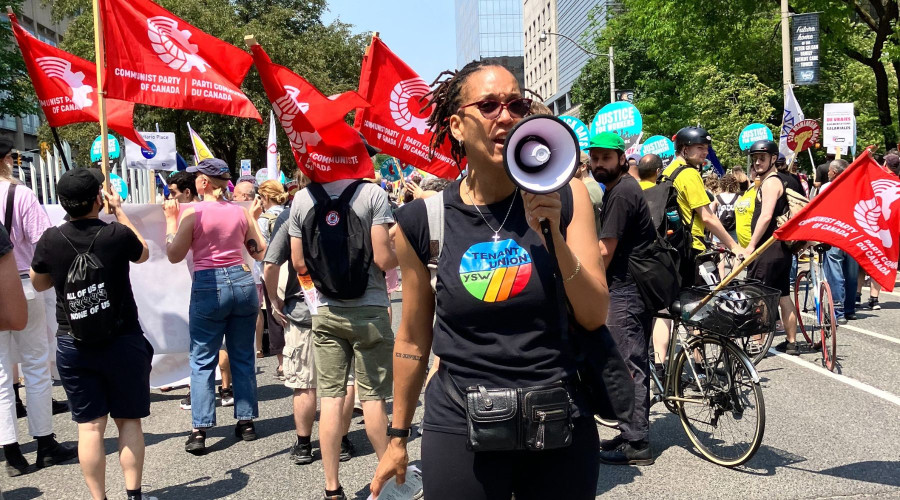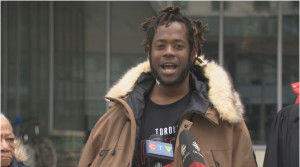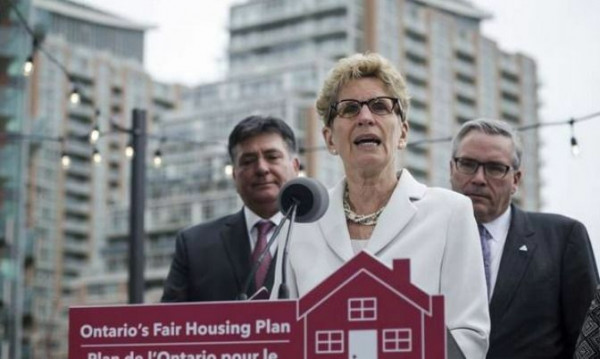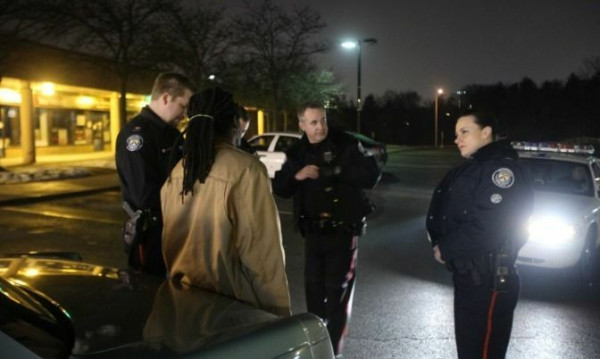The landlord kept filing for "above guideline increases," charging tenants for so-called improvements that did absolutely nothing to improve their daily lives. A fresh coat of paint on the doors. New carpet in the hallway that had been replaced just five years earlier. All of it billed to residents who were already struggling to make ends meet.
"Was it necessary to paint our doors, redo the carpet in the hall that was done maybe five years ago? No," Sharlene Henry explained. "But these are all things that they can charge us at rent increases for."
When she discovered her building had filed for more rent increases than any other in the entire city—and that tenants were paying 6% above what was even legally allowed—something inside her shifted. The frustration that had been simmering for years finally boiled over. She and her neighbours tried reaching out to the CEO. They protested at corporate offices. They showed up at their own building demanding answers.
Nobody listened.
So in 2023, Sharlene did what generations of Black organizers before her have done when the system fails them: she built collective power. They convinced 200 residents to simply stop paying rent until their demands were met. While in the planning stages of the strike, residents at three buildings in Thorncliffe Park, launched their own strike one month ahead of Sharlene's community. Things were snowballing quickly.
"At the height of the rent strike, there were five buildings in Toronto on a rent strike, almost 500 tenants holding back their money from different landlords," she said.
They refused to hand over another dollar until their demands were met. No more above guideline increases. A commitment to actually negotiate. And compensation for the 18-month balcony renovations that left families without outdoor space.
The corporation laughed them off at first. But fifteen months later, Sharlene and her union of renters won, reaching a settlement that she could not go into details about for legal reasons.
What started in one West Toronto apartment complex became what is believed to be the largest rent strike the city had ever seen—led by immigrants, people of colour, and working-class families who refused to be squeezed out of their living spaces.
The Game Is Rigged Against Renters (Especially Black Renters)
Here's the reality nobody wants to say out loud: if you're a renter in Ontario, the deck is stacked against you. And if you're Black? The odds get even worse.
The numbers tell the story. Since 2011, homeownership in Canada has been declining while the renter population has more than doubled. And when you break it down by race, less than half of all Black households in the country own their homes.
That means more than half of Black Canadians are subject to whatever their landlord decides to do—including two perfectly legal tactics that have become tools for pushing long-time residents out of their homes.
{https://www.youtube.com/watch?v=nw9JXJJoSFw}
Renovictions: When "Repairs" Are Really Evictions
A renoviction happens when a landlord evicts tenants under the guise of needing to renovate. Some landlords genuinely need to make repairs. But others? They're using the legal process to clear out long-time residents so they can jack up the rent.
Here's how it works: buildings constructed before November 2018 are subject to provincial rent controls. But if a tenant leaves and a new one moves in? Those controls disappear. A unit that was $1,200 can suddenly become $1,800. In 2023, rents in units with turnover increased by as much as 31%.
According to tenant advocacy group ACORN, eviction filings have increased between 70% and 300%—and that doesn't even count the renovictions that happen off the books.
Above Guideline Increases: Legal Loopholes That Drain Your Pockets
An Above Guideline Increase (AGI) is supposed to help landlords cover major repairs or unexpected costs. Ontario caps annual rent increases at 2.1%, but landlords can apply to the Landlord and Tenant Board to charge more.
The problem? The bar for approval is embarrassingly low. Something as meaningless as painting a door can justify squeezing more money from tenants. And while AGIs are supposed to expire once the landlord recoups their costs, there's no enforcement mechanism to make sure rents actually come back down.
Most tenants either don't know this or are too afraid to speak up. So they keep paying—sometimes for years after the repairs have already been paid off.
ACORN's research shows that AGIs are primarily weaponized by large corporate landlords, not mom-and-pop operations. These same corporations file multiple AGIs on the same building, maxing out the 9% increase allowed every three years. Individual landlords rarely do this.
The Province Just Made Things Worse
As if renters didn't have enough to deal with, the Ford government just successfully passed Bill 60—legislation that tenant advocates say will gut renter protections across Ontario.
The bill makes it way easier for landlords to kick people out of their homes, and harder for renters to fight back.
Right now, if you think you've been unfairly evicted, you have 30 days to appeal that decision. This bill cuts that in half—just 15 days. That's barely enough time to find a lawyer, let alone build a case.
Late on rent? Instead of having time to work things out, you'd get pushed through the eviction process faster. And the heads-up you'd get before an eviction? That's getting slashed from two weeks to just one. Imagine trying to find a new place to live, pack up your entire life, and move—all in seven days.
Here's another kick in the teeth: right now, if your landlord evicts you because they claim they want to move in themselves, you can get some money to help with the disruption. This bill eliminates that compensation entirely. So even if you've done nothing wrong, you could lose your home with nothing to cushion the blow.
And even if you're dealing with a genuine emergency—maybe a family crisis or a health issue—the bill makes it much harder to delay an eviction to give yourself time to figure things out.
Bottom line: this bill strips away almost every protection tenants have when facing eviction.
The government frames it as a way to “open up more units”, while organizers see it as a fast track to homelessness.
"How can someone leaving a unit that they can afford regularly now move into somewhere that's more expensive, open up units?" Sharlene asked. "We need to build truly affordable housing."
The Only Way Forward Is Together
Sharlene's rent strike didn't win because one person was brave enough to stop paying rent. It won because 200 people—then 500 across multiple buildings—decided they were done being exploited.
That's the lesson here. The Landlord and Tenant Board isn't designed to protect you. Provincial policy isn't written with your interests in mind. The only real leverage renters have is each other.
Organizations like ACORN Canada are pushing for real change: the right for tenants to return after renovations, mechanisms to keep newly renovated units affordable, and compensation for moving costs. In British Columbia, tenants have already won some of these protections.
But as long as wages stay flat and housing prices remain out of reach, renters need to organize like their lives depend on it—because they do.

 By
By 








